#would homestuck also be an example of this?
Explore tagged Tumblr posts
Text
I hate that most webcomics nowadays are posted on company owned websites that exploit their artist with a minimal pay
I miss when artist would have their own personalised website with whatever gorgeous theme their comic had. Head to toe the website would be solely about the comic and the artist (maybe even comics by their friends!)
I understand doing that nowadays would make your comic have a maximum of 1 reader, but as a kid it felt so good having like 20 bookmarks of all the webcomic i was reading and seeing if any updated after i got home from school
#'but if the comic isnt monetized in any way then the artist would still get nothing'#i like when people make art bcs they want to and they have fun doing it#also patreon is a thing#i remember the Its always raining here website fascinated me as a kid#would homestuck also be an example of this?#webcomic#webtoons#save me early 2000s indie comic artist#my dream is to make my own website in wich i post small 7 chapter comics about random ocs i make BL mangaka style
17 notes
·
View notes
Text
Homestuck Spoilers Out of Context.

#homestuck spoilers#(but out of context)#homestuck#undertale#sans undertale#sans but green#homestuck cherub#cherub#biblically accurate angel#memes#tigerbears posts#homstuck act 6#(I'm at like Act 6 Intermission 4.)#(So far would say I enjoy homestuck)#(but the intermission where Andrew Hussie used his characters to soapbox was a drag.)#homestuck act 6 intermission 3#(*we get it you hate “sjws” “content warnings” & “tumblr” no i'm not offended or triggered i just think it's painfully boring and unfunny.*#(also another example of how homestuck's dated)#(if you ever decide to read homestuck I recommended skipping the first two openbound sections.)#(except some people say there's plot relevent stuff so maybe just talk to Aranea and Meenah then ignore most of the other ancestor trolls.)#(the only highlights of openbound 1 & 2 were that random mention of undertale and zuko's voice actor in the let's read homestuck dub.)#(Sorry this post just turned into a rant about act 6 intermission 3 apologies for that)#(kankri is the jar jar binks of homestuck. I never felt annoyed by jar jar but now I know the pain og star wars fans went through.)
51 notes
·
View notes
Text

bloodswap doodles! the basis of this au is: what if everyone kept their moons and classpects, only their blood was changed? what would their signs be on the extended zodiac to reflect that?
#homestuck#homestuck art#homestuck bloodswap#admittedly this is an au where core personality traits are the same as canon.#it more has to do with the circumstances surrounding the events.#like for example. vriska accidentally killing aradia. who is a purpleblood. this would have HUGE consequences for vriska.#as a result shes more or less a fugitive.#and now. there is a scary ghost clown girl haunting her#also glyobglob is an egg. terezi loses her eyesight staring into the deepest depths of the ocean.#rather than the sun.#nepeta....is a catgirl hacker who goes holy fucking bingle!#lofaf bloodswap
158 notes
·
View notes
Text
Im truly not that much of a shipper when it comes to utdr but some ships like kerdly has a special place in my heart
#i dont mind and would love to read any other intrepertations of them aside from lovers#but it doesnt really cancel the fact that i love and would prefer them as lovers.#also lmfao fanarts are affecting how i draw the characters already. the red line on kris's hair is a big example of it#some of them are extremly cool#love all the susies btw#bowser-isk susie long and snickery susie the normal looking ones the cute ones#mine is between bowser and normal susie#hopefully#since i do try to make it look even if a little bowser-like#noelle designs are ESPECIALLY charming to me#i remember seeing someones recolored noelle and it was so cute#very cute#it reminded me of some fairytale books artstyle i had as a kid#lmfao i can go and on about this#oh also from what ive been observing so far lots of people who has some kind of history with homestuck makes berdlys gladses square#instead of circle which is his actual glass shape#man... makes you wonder why that is *wink wink*#LMFAO the post to tag ratio is genuinely silly#sorry#also by normal susie i meant more humonoid
7 notes
·
View notes
Text
homestuck is a DEEPLY plural narrative and my proof of this can be found in these trashy fanfics i found and/or wrote
#i would argue yes homestuck is in fact a somewhat plural narrative#but pointing to fanfics as proof is fucking retarded#also kinning does not inherently equal plurality#many plurals are kinnies but not all kinnies are plurals#also tavros isnt a shining example of plurality#also ALSO acknowledging your perception of someone is not the same as having a factive of them#bad fucking homestuck takes#homestuck
17 notes
·
View notes
Note
hi your junedave is SO GOOD can i see the first one pl0x... *on my hands and knees*
DSKJNDFJHBGDF firstly THANK YOU ABHSFHJSBDHGBSF!!! and secondly yes you may ^w^ here's lesbian June
(And like I said before I like having multiple headcanons of one character! so obviously the JuneDave/Pepsicola art is gonna be pan June, gonna give her a unique desin to differeate the two :3)
but be aware! this is old art... from... 2023!!!!!(scary...) so it looks very off and I do not how like it looks at ALLLLLL (SOBBING.), I think I made this mid 2023??? back when my art style was changing a lot.... (IT WAS A SCARY TIME OKAY!!!!)
(I also might change the Jegbert's to just be Asian like Jane if I ever remake some old drawings KSDBGJHDFBG)
!!!!Old Art jumpscare below!!!!
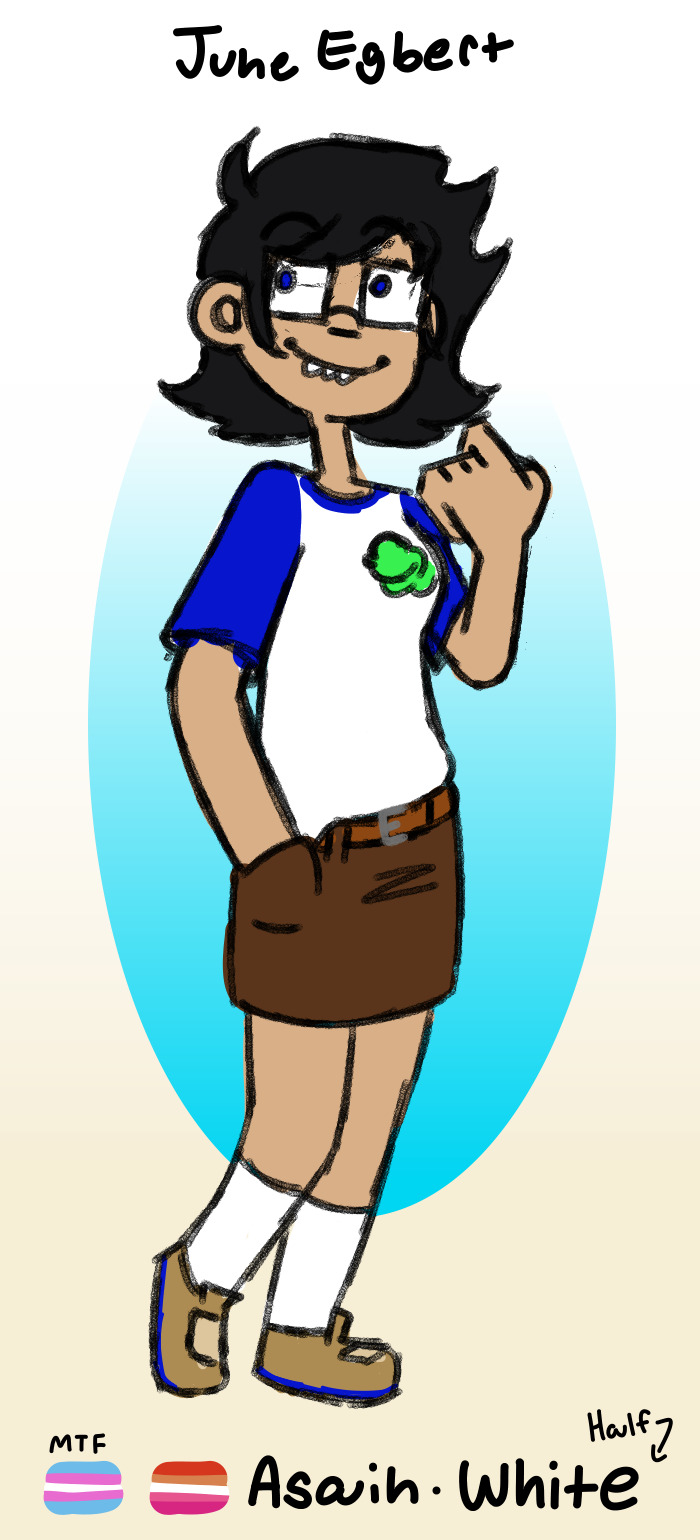
*jumpscares you*
#This was also the time where I made those beta kid headcanons that are on my profile somewhere (and on that one I mispelt Asian as Asain :()#I wanna remake becase I really don't like how I drew some of them *loud cough* Dave and Jade. *loud cough*#and I might add the trolls for the fun of it#homestuck lineup??? when???#oh yeah!! if you wanna know how my lineups work I have an oc lineup a few posts down somewhere for an example#I like making lineup they're really fun :3#dude if I ever do that I would want Calliope to be tall asf and Caliborn short asf#WOW I HAVE BEEN TALKING TALKING A LOT :DDDDDD#I hope I didn't bore you guys with my long ramble rambles!! I just like to talk and talk about stuff FKJDGBDJHFBHGJ#homestuck#old art#old fanart#fanart#june egbert#RAHHHHHHHHHHHHHHHHHHHHHHHHHHHHHHHHHHHHHHHHHHHHHHHHHHHHHHHHHHHHHHHHHHHH hi :3#also btw I just woke up so if there's any typos then uh...... whoops >w>
5 notes
·
View notes
Note
Should I read homestuck
tl;dr: no
actual answer: yes, but with some extremely important caveats.
Firstly, because Adobe shitcanned Flash, you can now no longer experience Homestuck in the form it was intended upon release... unless you download the Unofficial Homestuck Collection. This act of unbelievable, nay, saintly generosity by Homestuck's most dedicated fans allows you to experience Homestuck as it was intended - as close as is humanly possible.
"As close as is humanly possible" is the key phrase here. One indelible part of the original Homestuck experience was UPDATE! Homestuck would sometimes go weeks or even months (and later, years) between updates. I wasn't on Tumblr back in the day, but at the peak of Homestuck, even if you knew nothing else about it, you'd know when an update dropped because Tumblr's net traffic would increase something like three to fourfold. People would go apeshit bananas about whatever new revelations the Huss would drop on us.
You also need to realise that Homestuck is a product of its time and while its takes on sexuality and gender identity was pretty progressive (for its time), Huss did use the r-slur a bunch.
While we're on the subject of the author, Andrew Hussie (of whom my current understanding is that they have not changed name but go by they/them nowadays) is, in the most diplomatic possible terms, a very unique person. They are, at times, a visionary storyteller with genuinely fascinating ideas. At other times, they come off as kinda spiteful towards their readers.
Without meaning to dip into spoilers, some story beats seem (in my opinion) almost intentionally calculated to upset, irritate or mock certain fans. It never rises to the sheer vicious contempt that Steven Moffat had towards Sherlock's fanbase, but it does leave a bad taste in my mouth whenever I go back.
Additionally, and this is where a sort of birds-eye-view spoiler is unavoidable, the story suffers from the Game of Thrones pitfall of repeatedly increasing its own complexity by adding new plot threads without resolving existing ones, eventually leading to fatigue on the part of both the reader and the author. The arcs of a lot of characters just straight up get abandoned, while a couple of characters take an unnecessarily large amount of screen time.
There's one character in particular that the author openly states within the narrative (the author exists within the world of the story. It's... a whole thing) that they favour, and whose behaviour the story is warped to accommodate. You'll know exactly who I'm talking about almost the moment they show up.
Another reason I say that it's not really possible to read Homestuck as it was originally intended is because a lot of the shit that happens in it fits into the zeitgeist of the internet at the time any individual update was written. There's a whole section in the late middle third that is inextricably and very specifically tied to how it was like to use Tumblr in 2012.
Additionally, a lot of things have soured with time. There was the whole Hiveswap debacle (it was first announced in 2012. We got the first act in 2017. We got the second act in 2020. We do not even know if the third act will ever come out.). There were the legal threats. There were the Epilogues and Homestuck 2, which were... how do I put this? Not universally liked. There's been nearly a decade of discourse since Homestuck ended, and a lot of things haven't grown better with age.
All of that being said.
You should read it.
I cannot express to you just how big an impact Homestuck has had on internet culture. Even people who claim to hate Homestuck unconsciously use slang that it invented. Its unique ideas on storytelling, character design and narrative chronology have, in both subtle and unsubtle ways, changed the way millennials and Gen Z tell stories.
A lot of people were inspired to tell stories because of Homestuck - one example I always give to Lancer players is that Kill Six Billion Demons started as a comic on the MSPA forums (before it was homestuck.com, it was MS Paint Adventures), so Homestuck is in an indirect but demonstrable way responsible for the existence of Lancer. The sunglasses that Gideon Nav from the Locked Tomb wears have been explicitly stated by Tamsyn Muir to be Dave Strider's. Toby Fox made music for Homestuck, and worked on large parts of Undertale while living in Andrew Hussie's basement.
We also know someone in the Bluey creative team is a Homestuck, because...

There are subtle but direct references in Bojack Horseman, Hazbin Hotel, Steven Universe, Adventure Time - and those are just the ones that it's easy to prove! In a more general sense, I think there's a lot of cartoon series, movies, games, etc. that would either be very different or wouldn't exist if Homestuck hadn't happened.
It's certainly influenced my work.
I think, being very cautious to manage your expectations, that you should read Homestuck. At the very least, a lot of things people say on Tumblr will start to make, if not sense, a different kind of nonsense.
746 notes
·
View notes
Note
Caleare... whats your searing hottest homestuck take. Boiling fresh out the oven red hot homestuck take?
Idk if this counts as a hot take (this isn't much of an original reading) but quadrants always seem to be controversial so here are some of my thoughts on moirails. I think a lot of people tend to lose focus on pacifism as the foundational aspect of the relationship, where one troll pacifies the other. Nepeta's role in the relationship is to pacify Equius, Feferi's role is to pacify Eridan, Karkat pacifies Gamzee, Kanaya pacifies Vriska, Meulin pacifies Horuss, Xefros pacifies Dammek, etc.
I think that this is pretty intentionally meant to evoke the imagery of relationships within our own society and the societal imbalances that they can reinforce. Notice how in every m/f moirallegience, the woman is the one pacifying the man, or how overall, it's the troll on the lower end of the spectrum pacifying the one higher up. Not only does this fit in with the misogynistic attitudes of Alternian society, it reinforces the caste system as well (male-dominated highblood castes, female-dominated lowblood castes). Even outside of societal context, it's pretty easy to grasp how a relationship where one person depends on the other for emotional stability is inherently imbalanced (and, even if they were to have an equal role in pacification, it's then codependent). However, tied in with the fact that this role is most often attributed to the individual with less power, it reinforces the idea that they're fit for the role of servitude. It calls to mind the sexist imagery of the husband and wife, where they both "balance each other out," as it's the wife's job to serve the superior husband while it's the husband's job to provide for the helpless wife. Homestuck consistently presents the imbalances between genders within society and the concept of moirails is likely meant to be one of those avenues for that theme.
The only outlier in this model is Vriska and Terezi, at the end of the comic, who don't seem to fit into these roles. It could just be that we don't see much of their relationship, but they appear to fit the mainstream fandom idea of a moirallegience: two people who are intimately close outside of romantic or sexual attraction, fitting the model of what we know to be a QPR irl much more closely. They are like the question mark in all of this to me. Again, this could just be that we don't see much of their relationship, but it could also be an example of queering the dynamic to make something more sustainable 👍
My overall take on this isn't that moirallegience isn't inherently unhealthy, especially on an individual level, but rather that the general concept exists to reinforce and perpetuate the harmful dynamics on Alternia, almost like the lubricant that greases the gears of their societal systems (similar to how similar sanctions do so IRL, i.e. marriage). Still, any potential imbalance in the relationship isn't a bug, it's a feature. It's such an interesting way to reflect on these themes within the story and I think it would be cool if more people took it into account, if only because of how fun it is to utilize :^)
216 notes
·
View notes
Note
Hiii I really love your art and was wondering if you wouldnt mind showing what kind of brushes you use for your recent drawings thank you so much and i look forward to your future arts!
Of course! I've answered this a few times before but have never really tagged it properly, and I also realised that I've never actually explained what I use each brush for so I'll do that now!:

I'm gonna go through each of these brushes in order (and if i remember correctly, I'll link the top two since they arent default CSP brushes). (NOTE: almost all of these brushes have anti-aliasing turned off so that it can look more crispy and pixely!!! there is one exception to this that I will get into)
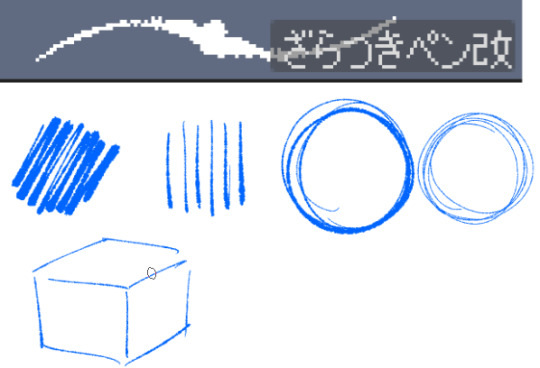
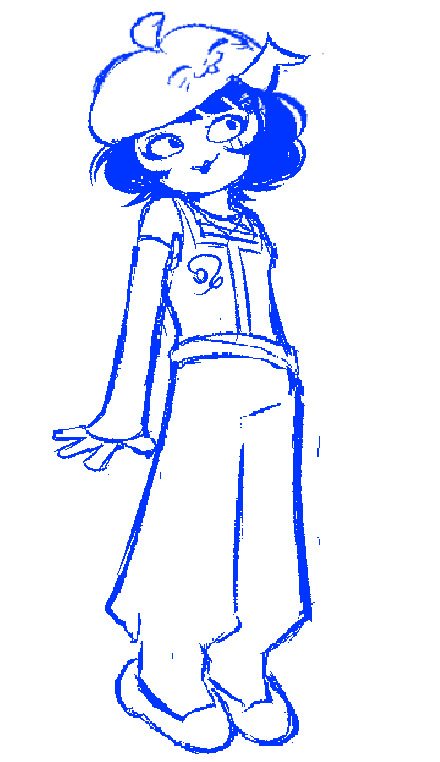
For this brush, I exclusively use it for sketching, it's advertised for inking digital manga panels, but with how the pen pressure is I feel like it adds form to my sketches
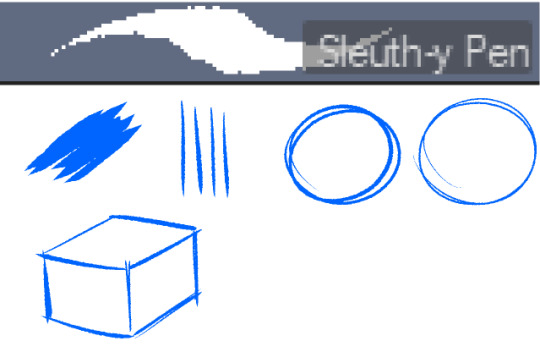

This brush, Sleuth-y Pen, is what I use mostly for MSPFA panels, mostly for lining, but sometimes for sketching too if I'm having a hard time with my usual sketching pen. It's really good if you want to replicate the homestuck style, and good for broad strokes on smaller canvases. The only issue is that the brush isn't great for that style if you use it on a larger canvas (ideally you would want 650 x 450) and can be especially messy if you're trying to get smaller details, such as open mouths, and certain facial details. I use another brush for that, which I will get into soon.
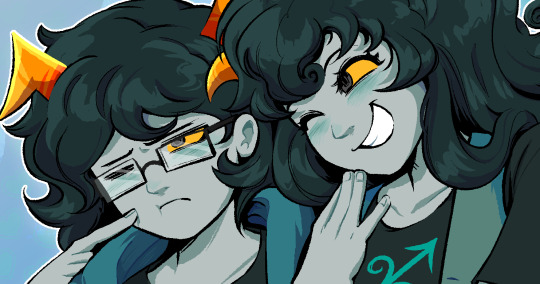
My second use for the sleuthy pen is for lineart on larger canvases in my usual artstyle! It has a texture to it that I like, as I like having my art appear a little rough around the edges, and the issue regarding small details isn't nearly as prominent of a problem
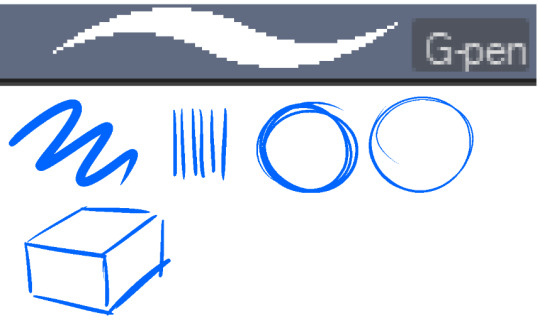
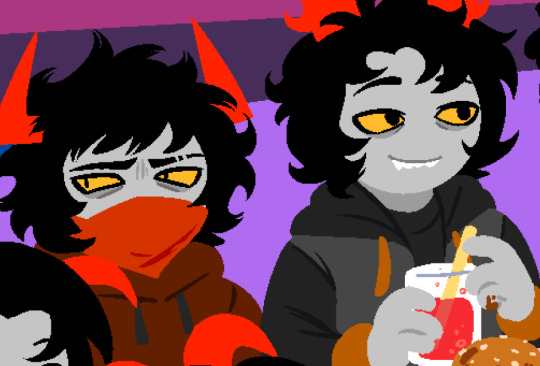
Almost done! Now we have the G-pen, a default CSP brush! This used to be one of my top 2 pens, along with its counterpart "Real G-pen" but nowadays I use it for two things: clean-up during rendering (usually getting those smaller details done that the sleuthy pen has difficulty with) and for doing SOME MSPFA panels (Vast Error, for example)
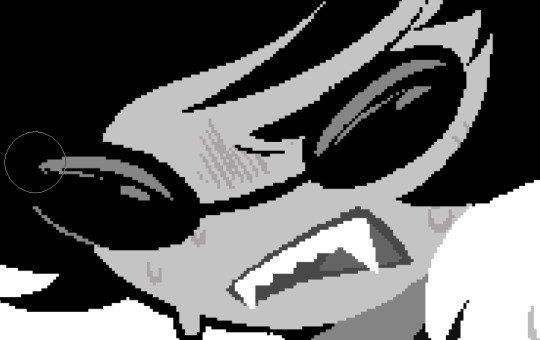
As you can see here, Liaaam's face is a little smoother than the rest of him, that's because I use the G-pen for those details, to keep things a lot cleaner! As for my other use, Vast Error's style from my understanding is a lot more "smooth" and "clean" which is why I exclusively use the G-pen for it, you can also make a lot of thick, juicy brush strokes with it which I feel works really well for the hair and folds in the clothes!
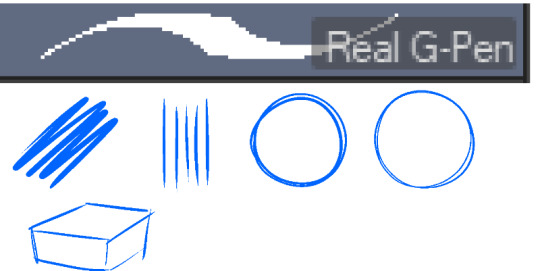
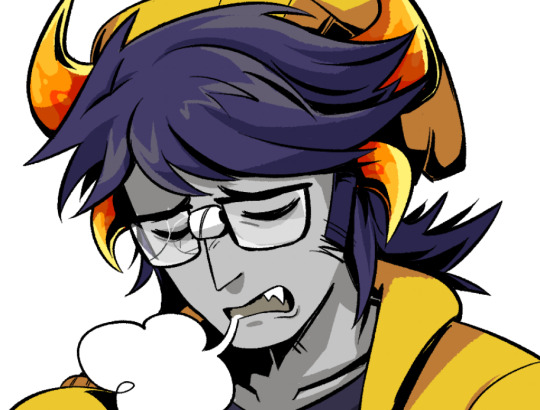
Finally, the Real G-pen, another default. This one is very similar to the last, its only differences are that it's slightly sharper and ever so slightly more messy. It's almost like a medium between the sleuth-y pen, and the g-pen.
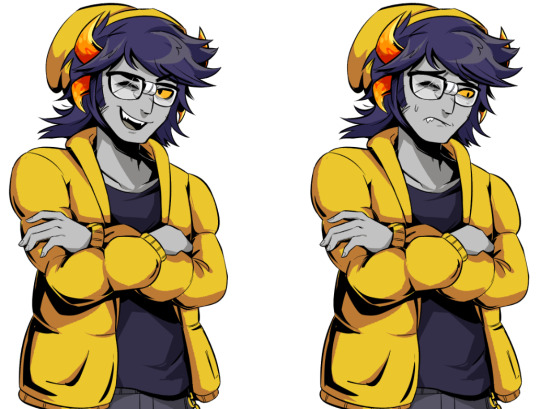
I'll be honest, I don't use this pen much anymore, BUT, I still consistently use it for one thing and one thing only: Friendsim sprites. If you want to make friendsim sprites I highly suggest this pen, and making sure it's set to "weak" antialiasing. If you want to go the extra mile, I like to use a lasso-fill tool to block out shadows in all of my art, although if I'm using a rougher brush I'll usually do that manually. There's also other brushes I've been using more for rendering full pieces, such as a "rake brush" and a "design pencil" with low pressure to get details like blush down without making it too intense. That's basically it! I'll link the brushes below if I can find them: sleuth-y pen textured pen rake brush
178 notes
·
View notes
Note
Do you have any thoughts on Equius
Equius is a fucked up kid who has done a lot wrong, but he is still a kid. He reads as a startlingly real portrayal of a pubescent autistic boy with an unhealthy and shaky grasp of his budding, overwhelming sexuality, with a concerning amount of influence from the internet. He is the result of adults failing him, and exposing him to hardcore fetish porn at an age too early. This is a real kind of guy that exists. A very common one, who I have met, like, at least 40 of.
Like Eridan, he feels like a kid stuck in a pipeline — except instead of the alt-right pipeline, it’s fetishism and hypersexuality. He feels like a pretty solid example of how getting involved in NSFW spaces online as a child can both deeply fuck up your sexuality and completely destroy your perception of what consent is, and what is and is not okay. He doesn’t have a grasp on boundaries whatsoever, and while this manifests in ways that are quite honestly horrifying and uncomfortable — like constantly projecting his Caste-Play BDSM fetishes onto nonconsenting, unsuspecting individuals, and… The things he did to Aradia — I cannot help but view him as an autistic boy having a rough time of puberty who got groomed through the internet over-exposing him to pornography at an early age. He’s deeply sympathetic to me from that angle. Again, I have met this kid. Homestuck is fantastic at presenting characters that are exact archetypes of real people you have known, be it personally or not. People you would have either been close friends with in middle school, or terrorized by in a random chat room on the internet. Maybe they were even you! There’s a complete nonzero chance someone is reading this who has played the role of Equius in their youth, who is totally fine and healthy now. And if that’s true, and this describes you… I’m proud of your growth!
Back to Analysis- His ardent Hemoloyalty is fascinating, also. I’ve written about this before, but there’s something compelling and very realistic about how his bigotry comes from a place of deep insecurity, rather than pride. I find bigotry coming from insecurity to be more common than it coming from overt pride. Many fictional bigots have such a genuine ego to them, a fine layer of paint labeled Badassery, when for the most part real life bigots are total losers with nothing better to do than worry about… Where someone was born, or how much melanin they have, or what’s in their pants, or whatever.
I get why people don’t tend to be fond of him, but the disquieting parts of his character are both very deliberate choices and also shockingly… Earnest, in a weird, Hussian fashion. I’ve never quite seen a character with his traits get portrayed before. He’s easy to work with, analytically speaking, you just have to be willing to stick your hands in the uncomfortable muck that is messy teenage sexuality. Many aren’t willing to, which is fair! But many also mislabel his uncomfortable traits as not intentionally uncomfortable, or simply a product of Hussie being weird and wrong and having bad opinions. This… Just blatantly isn’t the case. Sometimes fiction isn’t comfortable on purpose. Big whoop.
I think Equius could’ve been quite a fine person, had he been given the room to grow up. He’s like Jake to me in the sense that he’s one of the only characters I genuinely wouldn’t mind seeing expanded upon more, provided he be taken seriously, and not completely sanded down.
Alas.
678 notes
·
View notes
Text
Why The Ending Sucks
Ok I figured it out. Hear me out:
The entire comic has a running theme best summed up as "who is controlling the narrative, and why are we listening to them?"
Hussie plays a caricaturized version of himself that he describes as "buffoonish" and "oafish". Caricature!Hussie is well-meaning, but a dumb idiot who's incredibly biased in favor of certain characters and in disfavor of others (the most obvious example being his "love" of Vriska, but there's also the way he constantly disparages Eridan). As a result, you have to be VERY SKEPTICAL and VERY CAREFUL when approaching Homestuck's narration, because even when the "best" narrator is at the helm, he's not 100% trustworthy and incapable of giving the readers an unbiased view of the story.
I say "best" because, importantly, Hussie isn't the story's only narrator. He and Doc Scratch explicitly fight over control of the story - Doc Scratch, the child abusing predator who engineered Alternia's fascist murder society, whose shaping of its history is explicitly described by character!Hussie as "fanfic". He is then killed by Lord English, who is described by Hussie as embodying the "toxically masculine" and by extension, the patriarchy, and Caliborn explicitly takes control of the story. John even grapples with Caliborn's version of events, calling out how sexist and misogynistic and shitty it is.
So if we're keeping score: control over the narrative is LITERALLY wrested away from Hussie (who was already struggling to be unbiased) by fascists, abusers, and the patriarchy. It's stressed multiple times that Caliborn/LE are responsible for literally everything that ever happens; the reason the Game Over timeline ends the way that it does is because the alpha timeline is, in essence, the narrative LE is telling: the forces of fascism get to claim the new universe, thereby propogating itself, while friendship dies and all hope is lost.
Who's in control of the narrative, and why are we listening to them?
There are other minor examples of this, too: Aranea is an exposition fairy, and she's biased as fuck and wrong ALL THE TIME about her own teammates. Karkat's explanations and rationalizations are constantly tinged with his own self-loathing and self-blame. Sollux and Meulin are both prophets as per their Mage class, but are both so bogged down by their own emotional issues that the futures they pick out are actively harmful. So on and so on. At nearly every turn, you have to interrogate who's telling the story, what their motivations are, and what they're overlooking or deliberately obfuscating.
So given that this theme is so prevalent, and so thoroughly weighted toward "well, actually, maybe you shouldn't take narration at face value and should interrogate it and come to your own conclusions," it would be Really Weird for the story to go "actually, you can totally trust the narrative now because everyone gets a happy ending".
So, I know that it makes me sound like a conspiracy theorist, but here's my genuine take on Homestuck's ending:
The ending is shitty on purpose because the viewer is intended to take it as a dare to refute the narration and make something better.
Why are we letting character!Hussie tell the story? He's a biased idiot. Why are we letting the various avatars of LE and Caliborn tell the story? They're fascist, misogynistic, predatory assholes.
And - because Homestuck is a story about life - why are we letting idiots, assholes, abusers, and creeps dictate the story of real life? The world is full of forces that would try to take control of the story and make everyone else play along, represented in microcosm within the text of Homestuck. We cannot let those forces win.
So please go out and do something kind and hopeful and loving in the world today. Thanks for reading.
#homestuck#homestuck lore#homestuck analysis#anyway i know that this sounds Crazy but hear me out#Hussie does not drop the act in the book commentaries#which were written after the comic ended#moreover the ending and epilogues are chock full of stuff that really seems designed to piss off as many people as possible#like vriska coming back but having her character development reverted#which upset both vriska haters AND vriska fans#and famously the existence of Yiffany which lowkey fucks up rosemary#but the baffling thing is that in spite of these 'lets make everyone unhappy' moves#we're still getting vital exposition about how the world works (ultimate selfhood) and characters outright saying things like#it confused me for the longest time but looking at this running theme it makes sense#the ending of homestuck is the ending picked out by terezi... who never finished her arc#it's why even though it's LITERALLY the ending she picked out for herself and her friends#shes still unable to be happy in it or feel 'fixed'#because she too is unreliable!!! she can't do it alone!!!!#and bringing back vriska eased her guilt but didnt solve her fundamental issues...#because homestuck kinda can't have a happy ending unless EVERYONE IS THERE
192 notes
·
View notes
Note
so your crow strider au gave me inspiration for my own au, but i've built up the idea in my brain so much that now im scared to try to put it to paper (oops) did you ever deal with this while making crow strider? (and if you did, how you got over it would be much appreciated thanks fhdjks) also your art is cool :]
Hi, sure, i encountered a few blocks when writing CSAU and other projects. I think my method comes down to a couple rules
You need to know how the story ends from the start, so everything in the story leads to the end. Things can change about the contents of the story as you write it and you change your mind about the events that will transpire in it, but you need an end goal you can build your story towards. Most importantly, this is what allows you to add foreshadowing for said ending and structure the narrative in a clear direction. Otherwise, you might come up with a cool ending too late and regret some choices from past chapters that now don’t help this new ending you want
On that same note (and i’ll proceed to copy and paste from an old post) You need to have a Word document with a rough timeline of the events from start to finish. You need to know how it ends from the beginning and how they get there. It can be really, really vague, but it has to be there. It can go like
. They start the game, the trolls bother them.
.both games go to hell
.scratch
.trip, develop relationships
.new set of kids/teen drama
.old kids they get there
.to hell again
.John retcons everything
.new timeline
.they win
And that's homestuck simplified, Those are your Acts. With them, you will know where you're going and if you need to change something earlier. Everything will be constantly up to change of course, but you will be going from point A to point Z more easily.
From there, you go to every point in that list and create a Word document for all of them. I have them in different folders to have every act separated and in order.
A folder for each Doc for every Act, Numbered, and in each one make more lists like that one telling what happens, for example
WordDoc1 - ACT 1 "They start the game, the trolls bother them"=
.John needs to get his game
.introduce Rose
.introduce the trolls on pester chats
. John gets the game
.introduce Dave
.etc
And those are your chapters. Now you can know the extent of what you want to do and if it makes any sense.
I addition to that, every Folder can contain not only the Word document for the Act but also relevant texts and art that are connected to the Act, so evey folder is all about that specific act and any inspiration for it.
Another piece of advice I can give you is to hint at anything important. That's a rule of comedy; actually, the comedian usually closes the show with something related to the first things they said.
That works for everything, and makes people go, "Oh the thing! The meaningless thing they said earlier, it was a clue all along!"
Interconnect it like a web, and that web will stop the story from falling
Homestuck is so ridiculously interconnected that you lose track of the stuff and objects that repeat that have no way to be where they got to be, songs and people and events that are too similar to not be connected but nobody addresses, things like that make it feel like you're dealing with a universe and not just a line of events.
3. Yet another thing, it's something I'm still trying to assimilate, and is that less is more, sometimes things don't need to be said, specialy not bluntly, and an expression, a gesture, a flinch can summarize them. Backgrounds can be reduced, and ideas can be conveyed.
one example is, In homestuck, it's never said that Dave was raised with lack of food. He never sais it, but it's shown in how happy he was to find a warm bottle of juice in his closet, how there is only weapons on the kitchen and no sign of food, how he later sais he never learned what the purpose of a fridge was until he saw it on tv. If someone is lacking something, don't have them say, "i grew up without X thing" show what filled that space in the absence of X thing.
Instead of some character saying, "My dad was never there for christmas" have them say how they thrited for presents at the local goodwill, payed with their lawn mowing money and put the presents under the tree themselves for their siblings and mom.
4. Something that I always have in mind when writing the dialogs and sketching the scenes, is
"I have an idea; what's the easiest way for someone to get the idea, to get the feelings i want to transmit from the idea?" I made the art something I could handle drawing hundreds of times, simplified the coloring, the aspect symbols, the way I draw backgrounds, the way I write dialogs, etc.
That will save you time and work and could prevent you from getting stuck with a project too big to handle
5. This is the most important one: The first draft’s only purpose is to exist.
Writing is like playing darts sometimes; you only get closer to hitting the center by missing it and learning what not to do. That’s an actual rule on animation and a motto on the Disney office. “Get it wrong as quick as you can,” because when you learn what you’re doing wrong is when you start learnign what doing it right means.
If it helps, title your first draft “the dumb version,” because that’s what it is—the version to get the idea out of your head, and then you built over it.
On the same note, once you write "the dumb version" don’t correct it. Rewrite it. It’s annoying, I know, i know, but fixing and fixing a text only carries the mistakes from the first draft, and everything looks kind of disconnected, because it ends up being a Frankenstein text of all the versions of the story mixed together.
This also applies to art; that’s how I handle both writing and drawing; if it’s not working, hold onto the core idea, new page, restart.
Rewriting it puts it in perspective; it feels like a text of its own, with a clear intent in mind.
I think that’s all I have. Making a story is mostly about managing your strengths and weaknesses, organizing and not being scared of it not being perfect.
Hope this helps.
167 notes
·
View notes
Text
Ask Masterpost 1/25/2025
I will be answering the BLOG RELATED asks that I have received since opening my inbox. Lucky number three this finally becomes consistent :).
I would like to state here that even though I don't respond to them (I'm persnickety about keeping ask spam low) I very much appreciate everyone's well wishes and compliments and gratefulness for this blog. I screenshot all of them and keep them in a folder. Thank you so much and I hope you keep having fun :).
@forrest-knight asked: Hello! I am here to ask for some clarification regarding the rules: “Songs from multimedia series that are primarily NOT video games (such as the Homestuck minigames, for example) will not be accepted.” I’m a bit confused with this rule, does this mean we’re not allowed to submit songs from licensed video games (aka games made for non video game media), even if the song is originally made for the game (ex. To The Moon from the DuckTales NES game). Or does this rule is intended for something completely different? *please note that I’ve never read homestuck, so this might relate to my confusion Anyways, thank you so much for doing this! And I hope you have a great whatever time you are reading this!
SO Homestuck was the only example I could think of at the time as a series that actually did this. I was specifically thinking about franchises/series/works that 100% did not start off intending to be a video game but, in the nature of being a multimedia series, added video game minigames or mobile games as it developed.
This is referring to things like homestuck (a webcomic that featured small browser/flash games within the comic), many idol gacha games** (hypnosis mic, love live), etc. This does not include series that were 'completed' (loosely used since I know many of these frequently get universe-expanding sequels and threequels and whathaveyou) and then had video game spinoffs, such as Star Wars, Marvel, etc.
** exceptions being tracks that are exclusively used in the video game itself, such as BGM.
I know this rule is probably the most complicated one and I'm still trying to figure out how to word it clearly and precisely LMAO. Fundamentally it comes down to intent, which is why I'm still on the fence some things like tracks used exclusively in promotional materials and things like that.
That being said: if the song is originally from a video game as in literally you can hear it while you are playing the video game you are totally in the clear
And according to your second ask (I won't name the songs in case you want to submit them): The one made for and coming from the NES game is fine (of course), AND the one that is the 8-bit version of the NON-VGM one is ALSO FINE, because it was REMIXED for the NES game :).
-----
**NUMEROUS QUESTIONS ABOUT PUTTING DISCLAIMERS ASKING PEOPLE NOT TO SPOIL THE SONGS**
The blind listening and polling period is just for fun! If someone really likes a song and wants to know what it is/where it's from, PLEASE feel free to tell them!!! And PLEASE always enter the notes with the expectation that there may be song spoilers!!
I will ask that you keep it in the TAGS rather than the comments or reblogs (you're more than welcome to DM people the title if they ask), just for the sake of people who might want to discuss the song without spoilers. I'll put that in the pinned and the (eventual...) formal rules.
-----
What's up! New here so sorry if this has been asked before but has the exact same song been submitted more than once before? Like it's clearly different people but the same song keeps getting submitted over and over again?
Ever since Mod Rae cleared duplicates I have no idea anymore, BUT I know there have been a lot of different submissions for a few select Disco Elysium songs. That doesn't shock me because I know it's got a cult following here :).
-----
do you get a lot of the same people in ur notes or is it like. a few of the same and then it branches out to fandoms where people know the song? or do u not pay attn to your notes at all (also fair)
I do read the notes (when I remember)! I really like hearing people's opinions, and I always look through the tags on songs I know (I find it really hilarious seeing 'is this dark souls?' 'is this nier?' on any orchestral ever). There are a lot of familiar faces but I'd say the majority for any given poll are new or sparsely in the notes :).
-----
Would you ever consider adding two more "i dont feel strongly/have an opinion" options to the polls? Specifically, "it sounds familiar and i dont have an opinion" and "ive def heard it before and dont feel strongly/have an opinion"? Of course, if theres a specific reason why you dont add those two as options, feel free to ignore this, ty <3
I've considered this -- but honestly, that button has always existed as more of a 'I just want to click a button' option than an actual datapoint I'm looking for (I think I might have answered an ask similar to this before but I don't remember so I'm answering it again LOL). When that option dominates, I always read the notes and tags for discussion and I'd encourage anyone who is genuinely interested to do the same. Actual complex opinions, of course, cannot be captured with the limitations of preset poll options anyways LMFAO.
-----
@mkcannothelpyou asked: I'm beginning to wonder if spacing series severely further apart and prioritising picks further down the queue that aren't as represented would make for a more interesting order - as it is, it feels like you can more or less still track what people submitted and when, with waves of series (and closely related works within those series, at that) coming in conspicuously densely. Hearing the same style only days apart might impact poll results for the negative as time goes on.
This was mostly the fault of me allowing people to submit multiple songs at once, leading to songs with similar qualities (as they are all liked by one person with a particular taste) being grouped together, even if they're from different series. I limit submissions to one per period now so this will not be a problem in the future :').
-----
@the-mayor-of-space asked: how long do submissions typically stay open once they are open?
I originally wanted to have them permanently opened (thinking people wouldn't mind waiting for their submissions) until I got an insane amount of submissions, severely underestimating the popularity of this blog. I then tried to do a 24 hr submission period, and then a 12 hr submission period, but both of these still ended up with a fuck ton of submissions so the current answer is 'They're closed until I can figure out something proper'...
I don't want purging the existing submissions to be on the table, but if I get to the 1 year anniversary of this blog without a better option I might have to go that route -- in which case I'd probably publish all the unposted options so people know if theirs was cut so they know to resubmit it if they're still interested.
-----
**NUMEROUS QUESTIONS ABOUT HOW FAR BACK THE SUBMISSIONS ARE**
WE'RE FINALLY IN AUGUST!!!!!!!!
-----
are fan/non official/non licensed versions of songs allowed? because i am 100% certain #293 is a fan made remaster and medley arrangement (im not the submitter but i know the song well - i found the youtube video the audio is from and the comments from OP confirm it is a fan remix). if they are, that's totally cool, but i couldn't find anything in the submission rules about it. i dont intend this ask to be rude or hostile at all, and either way im grateful you've created such an active community with this blog!
They're not really allowed unless they're from a mod or fangame. Since it's a fanmade remaster it's kind of towing the line, so I'm not inherently against it, but it might end up just being a highly situational thing.
Note: I'm not familiar with Fire Emblem at ALL but I knew this particular song was from an older game, which is why I wasn't opposed to posting the remastered version. In any future submissions I'd appreciate if this sort of thing were indicated just in case! I will add that to the submission guidelines :). And of course if there's a better way to go about this (i.e if the game is like, 30+ years old fanmade remasters/upscales are permitted or something like that) I will make sure that's made clear as well :).
-----
sorry if you've answered this before but I was just wondering, are people allowed to submit spoiler songs for the polls? like final boss songs and songs from endings and secret endings
Absolutely! But I think for all future submissions (this doesn't apply now since there's a huge backlog) I might put a hold on the submissions of OSTS from new games for like 1-2 months (i.e No Mario Kart 9 OSTs until two months after the game drops!) so people who are playing/going to play the game have time to play it before hearing the OSTs unprompted.
-----
@its-daisukenojobito asked: Just out of curiosity, do you prefer the more obscure submissions, or more well known? I feel like for the sake of reach, the more well known the better, but as a participant, i love being able to hear something I wasn't expecting, and knowing it!
I have no preference, but it's always fun hearing good stuff from games and series I've literally never heard of!
-----
@venonomnomicon asked: am i allowed to DM to check the status of a submission? it was a couple of months ago though i do respect it's probably just deep in the queue as you get hundreds of submissions a month lol
Absolutely, but you'll have to DM my main blog (@himejoshi) because apparently tumblr doesn't let you have DMs when you have more than one blog admin.
-----
@royvalentine asked: is the form supposed to be only submittable once?
Yes, so people would only submit one song per submission period. I intended to make a new form for every submission period... There just hasn't been one since.
-----
hi question, do pinball tables count as video games?
I don't think I have enough experience to answer this question... What do y'all think????
113 notes
·
View notes
Text
TT: Were you serious about wanting to die? Yes. TT: Why? I'll tell you later. […] Because that piece of information would not fit elegantly into the sequence of our exchange at this moment. TT: Then you know how this entire conversation will go? Yes.
By the way, I think I’ve solved the mystery of Scratch’s dark spots – and, potentially, his omniscience itself. It's a bit of a meta answer, but this is a meta comic. I think it fits.
Here's my take: Scratch knows exactly what Hussie knows, at the time of writing. No more, no less.

Hussie, while writing this conversation, has access to all the information about Homestuck that currently exists. He 'knows everything' about the world of the comic - or at least, everything that's set in stone.
But he doesn't necessarily know what the next line is going to be, simply because he hasn't decided yet. Hussie knows 'everything' - but at the time of writing, Homestuck still has 'dark spots' that he hasn't filled in.

In time, though, each dark pocket will be filled.
Unlike Hussie, Scratch doesn't get to decide what these dark pockets contain - but in every other sense, his knowledge of Homestuck is exactly equivalent to Hussie's. He is omniscient, in the sense that he has access to all the information about Homestuck that currently exists - everything that's been decided by the author.
I think an example will further illustrate what I’m getting at.

Out-of-story, Hussie decides that Terezi is going to message Scratch. In-story, Scratch doesn't know how she achieved it, simply because Hussie hasn't decided yet. His omniscience can supply him with any information that exists - but this information literally hasn't been created yet. Just like Hussie, Scratch has to 'figure it out' instead.
So that's it, I think. Doc Scratch's omniscience is author clairvoyance, with all the benefits (and drawbacks) that that entails. He can know things that we don't know - things that Hussie has decided, but not written - but he can never know what Hussie doesn't know.
Plus, this explanation also puts a new spin on some rather odd phrasing he just used.

An explanation of his death wouldn't 'fit elegantly' into their exchange?
That's not how a character thinks.
That's how an author thinks.
347 notes
·
View notes
Text


!! PLEASE READ !!
I would like to be able to make merch next year! :) In the form of keychains, stickers, and perhaps even prints of my art! Here are some examples of designs I made, with this pride month in mind! Transgender March, Genderfluid March, Aromantic Erisolsprite and Agender Erisolsprite charms! :) I wanna make more soon!
I would like to make merch of both original characters/original content (Frettuccinni Afraido, MAYBE Consequences too) but also for fandoms that I am part of, for example, Homestuck! If you have design suggestions, please comment them below and I may take them into consideration.
The best ways to support me are through commissions and also subscribing to my Patreon! However if you are unable to do either of these, then PLEASE consider reblogging this post or sharing it so I can reach a vaster audience!
Thank you so much if you took the time to read this. Have a wonderful day/night, and an amazing pride month! <3
#pride month#pride#homestuck#homestuck eridan#homestuck erisolsprite#erisolsprite#hs erisolsprite#hs eridan#eridan ampora#march eridan#merch#fan merch#commissions open#tumblr fyp#digital art
191 notes
·
View notes
Note
do you know of anything with a similar "clockwork storytelling" style of plot development that you used to described act 5 in hymnstokes?
I'm glad you asked this, because this is a concept I've kept in my mind for a long time.
The most obvious well-known examples of clockwork storytelling that come to mind are the films of Edgar Wright, with Hot Fuzz in particular standing out. Edgar Wright's style is that every detail and line of dialogue, no matter how seemingly inconsequential, comes back later to mean something more than it initially seemed. There is no wasted space, nothing extraneous or unneeded. It is all extremely tight and extremely satisfying to see play out.
Film in general, having significant restraints in terms of length, is often subject to this style, though at differing levels of complexity. What is so exciting about Act 5 of Homestuck is that it manages this style while juggling a zillion different characters and plot threads, so when the pieces all slot together it has the sprawling sense of a symphony with hundreds of individual performers working together at once. But I would argue that even something like, say, most Pixar films follow an ethos of extremely tight plotting with minimal extraneous elements. Pixar operates at a smaller scale, so it doesn't overwhelm with magnitude the way Homestuck does, but it still creates that feeling of satisfaction via structural perfection.
Another good example is Rick & Morty. Dan Harmon is an Edgar Wrightian who has his own personal "hero cycle"-style plot structure he likes to stick to, and that level of plotting is on display in most episodes of the first few seasons of the show. What makes R&M an interesting example, though, is the intrusion of Justin Roiland's influence. Roiland is like, a dumbass stoner whose storytelling ethos seems to be to adlib goofy noises into a mic, which is completely at odds with Harmon, but it complicates the otherwise simplistic story template and wound up creating some of the show's most quotable moments (wubba lubba dub dub).
I like works that fuse intricate and satisfying plotting with bizarre and difficult-to-grasp or even contradictory aesthetic decisions like that. My two favorite anime, Puella Magi Madoka Magica and Blood-C, both fall into that camp, and both times it's due to the utterly opposite aesthetic dispositions of the show's respective directors and writers. Madoka, for instance, balances Gen Urobuchi's tight, almost mathematical plotting (the show has a major plot development nearly every 3 episodes on the dot) with Akiyuki Shinbo's surreal and eccentric visual style. The visuals wind up complicating what would otherwise be a perfectly-composed but possibly quite dry narrative. Blood-C, a less well-known show, similarly combines a rather simple narrative by CLAMP -- where every event and line of dialogue gestures toward a major twist revealed at the end of the show -- with a manic, sleazy gorefiendery from Tsutomu Mizushima, the director of Bludgeoning Angel Dokuro-chan.
When it comes to clockwork narratives at the scale of Homestuck, it's harder to find examples. Of course, Homestuck is itself faking being a clockwork narrative, which I think I talked about in my old Hymnstoke posts. Homestuck's style is to simply toss out so many details that even by calling back to only a third of them it creates the impression via volume alone that it was all planned out and deliberate. A great example is John's toy chest. It contains some items like the Sassacre book that have a recurring purpose in the narrative, some items like the trick handcuffs that have one notable callback use (when John's Dad escapes captivity using them), and some items that only briefly reappear in the background of later panels. It also contains one item, the fake blood capsules, that never show up again (at least John's fake blood capsules don't; there are some fake blood capsules used by Dave's Bro during the whole puppet Saw misadventure). Hussie has only really meaningfully called back to a few of these details, but has created the impression he has called back to a lot of them, because there are simply so many.
In reality, Homestuck, even Act 5 Homestuck, is laden with extraneous and useless details. Most of the trolls are useless, which is why so many of them are glibly killed off. I used to think the only truly important troll to the narrative was Vriska, and by extension any troll that was important to Vriska, such as Terezi. Now, though, I realize that Vriska's breaking-the-game-for-personal-satisfaction shtick was hijacking Rose's whole bit. Rose was constantly seeking ways to break the game or exploit its boundaries. This ultimately culminates in nothing. Rose goes "grimdark," a completely meaningless state that causes her to be goth for a scene or two, and then that's over with and she becomes an essentially ancillary character for the rest of the story, useful only for a few bits of exposition. Even if we ignore the Act 6 part of that, it's a completely pointless set up with no payoff. Rose questioning the game and trying to break it leads nowhere. All the important game breaking is done by Vriska.
I think you could easily do a troll-less rewrite of Homestuck where the only major difference is that Rose is the one who creates Bec Noir instead of Vriska. It's true that the trolls frequently give the kids exposition that guides their actions, but the story has so many sources of exposition -- the sprites, random writing on their planets, Doc Scratch, their own future selves -- that you could easily fill the gaps they leave. That's the other way Hussie fakes a deliberate and satisfying clockwork narrative: redundancy. Hussie can have 100 characters who all "feel" like that have a role because many characters are all basically doing the same thing. I think I once said, in a spiel about database-driven storytelling, that Hussie wrote similar to how he coded. If you ever looked at the HTML of the old MSPA site, I might have been more right than I knew...
This all probably sounds quite harsh on Homestuck, but I think even creating this illusion of unity at such a large scale is impressive. Compare to a lot of the long-running shounen, which accumulate hundreds of characters who are relevant for their introductory arc and then become part of an increasingly gigantic crowd of tagalongs who are lucky if they even get to say a line now and then to remind the audience they exist. Hussie used the (at the time) brand new concept of the "meme" to accomplish a lot of this aesthetic clockworkery. The most common callbacks in Homestuck, after all, are repeated lines from Sweet Bro and Hella Jeff. The redundancy in characters and details helped the work's internal meme language because memes tend to disperse by being templatized and reused in a variety of similar-but-different contexts. In a normal story, you might see stairs several times, and not think anything of it. But in Homestuck, the concept of "stairs" is memetically meaningful. If stairs show up, you better be sure you'll soon get a memetic callback. A bunny? There's a bunny? Oh shit. You better put it back in the box. In this paradigm, a character being similar to another character, almost to the point of redundancy (i.e. Dave and Davesprite and Dirk), is aesthetically unifying, rather than pointlessly promulgating.
57 notes
·
View notes